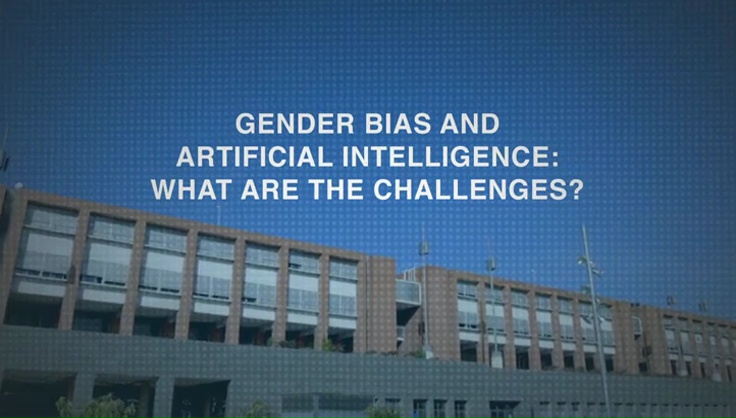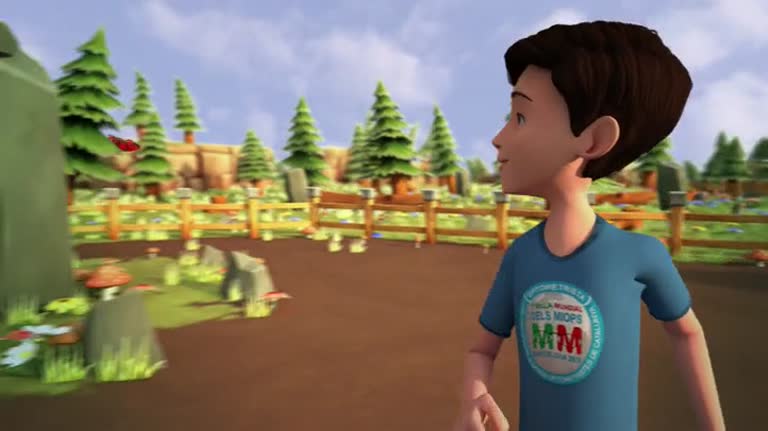Ways to protect your software project and Open Source Software
Accés obert
16 de febr. 2021
10
visualitzacions
Malcolm Bain (Across Legal) introduces us to Intellectual Property in software-based projects. Patent is not the only way to protect Software-based project or results, in fact, it is just another one. Moreover, when we talk about Open Source Software, things get even more interesting.
Llicència: Reconocimiento-NoComercial-CompartirIgual 3.0 España (CC BY-NC-SA 3.0 ES)
Sèrie:
UPC Projects
Vídeos de la mateixa sèrie
Ways to protect your software project and Open Source Software
Accés obert
16 de febr. 2021
Malcolm Bain (Across Legal) introduces us to Intellectual Property in software-based projects. Patent is not the only way to protect Software-based project or results, in fact, it is just another one. Moreover, when we talk about Open Source Software, things get even more interesting.
Features and requirements for Software-based Patents
Accés obert
16 de febr. 2021
Is it possible to patent Software? Margalida Seguí and Jaume Juncosa (TJA) talk us about the main requirements that a Software based invention must fulfil in order to be patentable with some examples.
Software & Entrepreneurship – the case of Mitiga Solutions and Nearby Computing
Accés obert
16 de febr. 2021
Alex Martí (founder & CEO, Mitiga Solutions) and David Carrera (co-founder & CSO, Nearby Computing) tell us about their experience in software and entrepreneurship. How important is IP strategy when creating and running a software-based company?
Challenge Based Innovation 2020: solutions for the future of humanity
Accés obert
26 de gen. 2021
Urban mobility and how to reassure users after COVID-19; future jobs and forms of employment, particularly working from home and work-life balance; the transformation of education and learning; and the importance of verifying information to combat fake news—these are the four challenges set this year in the seventh edition of Challenge-Based Innovation (CBI), a programme organised by @IdeaSquare and the innovation department at CERN to encourage multidisciplinary teams of students to work together with researchers and teachers from different entities on new solutions for the future of humanity.
Eight university teams consisting of 42 students from the Universitat Politècnica de Catalunya · BarcelonaTech (UPC), Esade and the IED Barcelona of 19 nationalities, presented their prototypes online after months of work sharing knowledge with CERN scientists. The projects have been in development since September in partnership with Fusion Point, the co-working area shared by the three institutions on the Rambla de la Innovació, on Esade’s Sant Cugat del Vallès campus.
This year’s participants worked online with CERN teams to address some of today’s social issues using cutting-edge technologies developed by the scientific institution. The projects include proposals to reassure users of public transport following COVID-19, systems to increase the motivation of people working from home, technology to facilitate distance learning by people with autism and apps to verify posts on social media. Each challenge was developed by two teams of students from different universities who defined them according to sustainable development goals.
Eight university teams consisting of 42 students from the Universitat Politècnica de Catalunya · BarcelonaTech (UPC), Esade and the IED Barcelona of 19 nationalities, presented their prototypes online after months of work sharing knowledge with CERN scientists. The projects have been in development since September in partnership with Fusion Point, the co-working area shared by the three institutions on the Rambla de la Innovació, on Esade’s Sant Cugat del Vallès campus.
This year’s participants worked online with CERN teams to address some of today’s social issues using cutting-edge technologies developed by the scientific institution. The projects include proposals to reassure users of public transport following COVID-19, systems to increase the motivation of people working from home, technology to facilitate distance learning by people with autism and apps to verify posts on social media. Each challenge was developed by two teams of students from different universities who defined them according to sustainable development goals.
Gender bias and artificial intelligence: What are the challenges?
Accés obert
31 de març 2020
Marta Ruiz Costa-Jussà, a researcher from the Intelligent Data Science and Artificial Intelligence (IDEAI-UPC) research centre, analyses how gender bias in natural language processing —a sub-branch of artificial intelligence— affects, for example, some Google Translate translations, in which one gender prevails, and automated hiring processes that prioritise male candidates over female candidates. The researcher talks about the causes of this phenomenon and the challenges it poses to artificial intelligence.
Eye health awareness campaign to fight myopia
Accés obert
3 de febr. 2020
Animated video of the awareness campaign launched by the UPC’s Terrassa School of Optics and Optometry (FOOT) and the Official Association of Optometrists of Catalonia (COOOC). The video, which is being screened in more than 200 cinemas in Catalonia, offers tips to prevent people from developing myopia, especially the young. Experts recommend limiting the use of electronic devices to prevent what is considered by the World Health Organization to be a 21st-century pandemic that affects 6 out of 10 university students.







